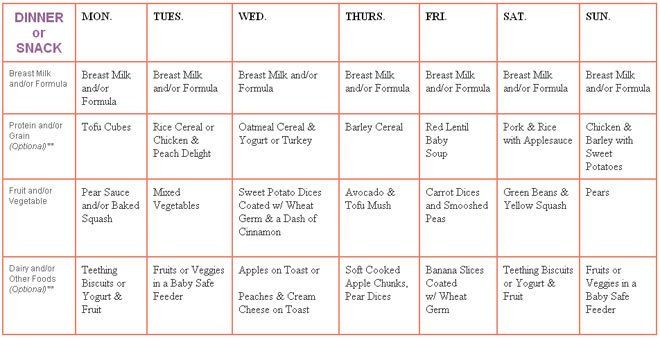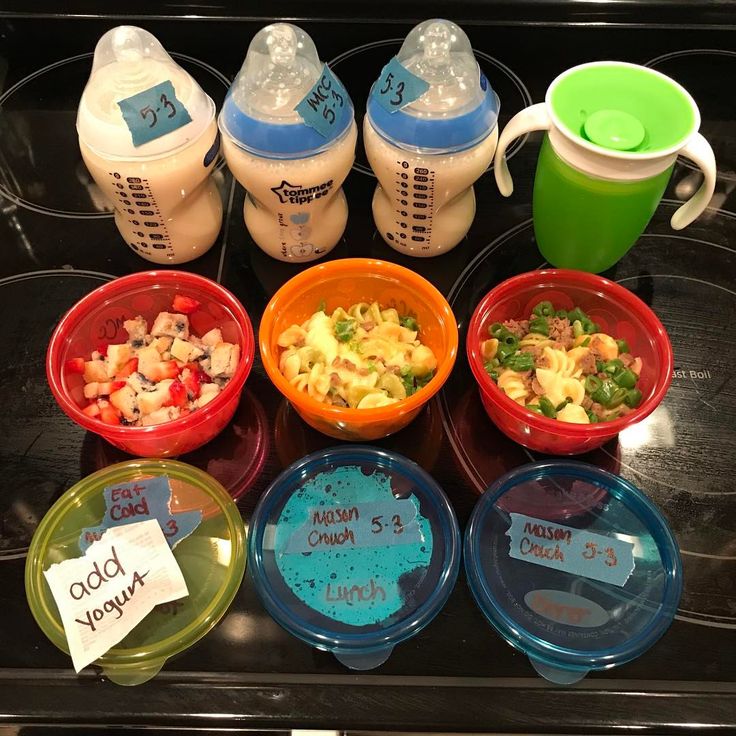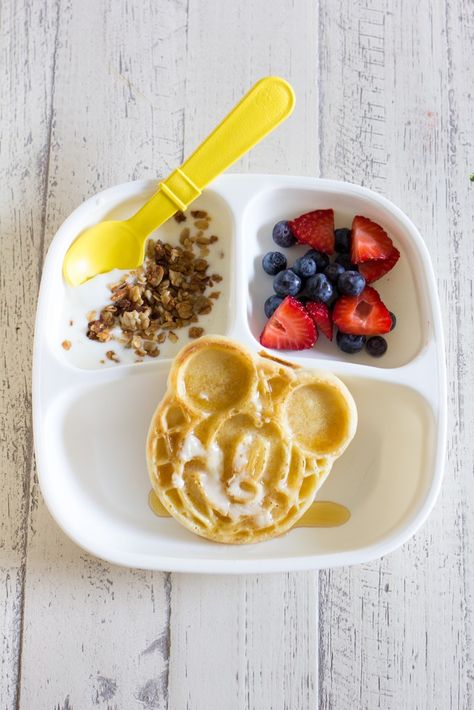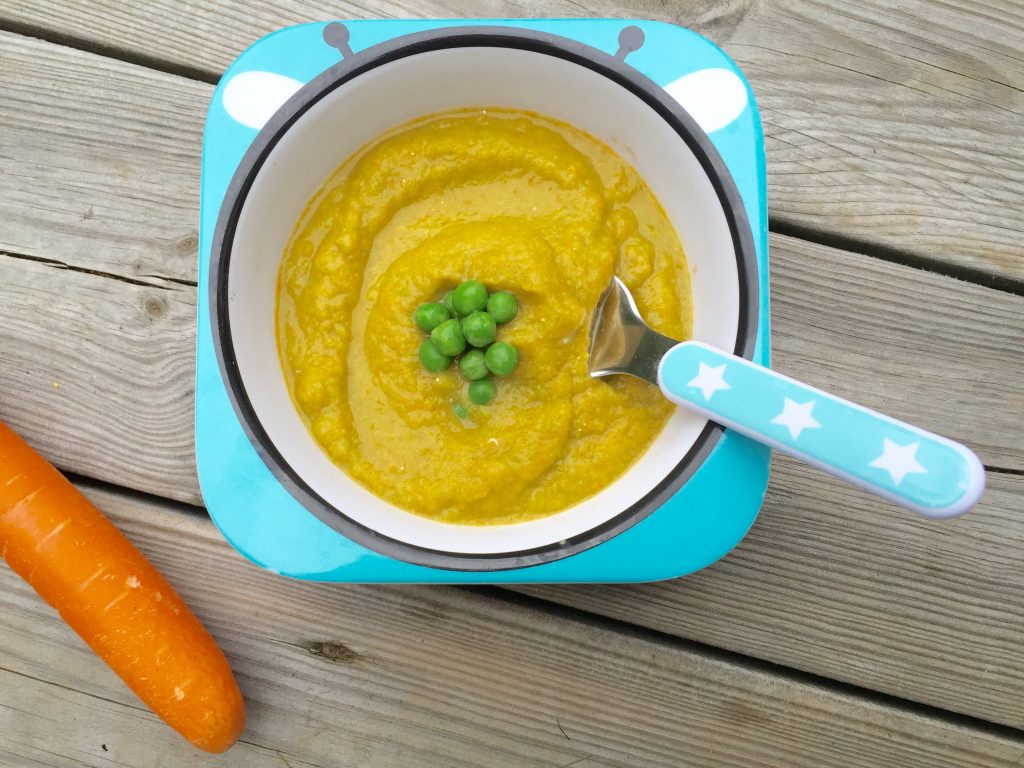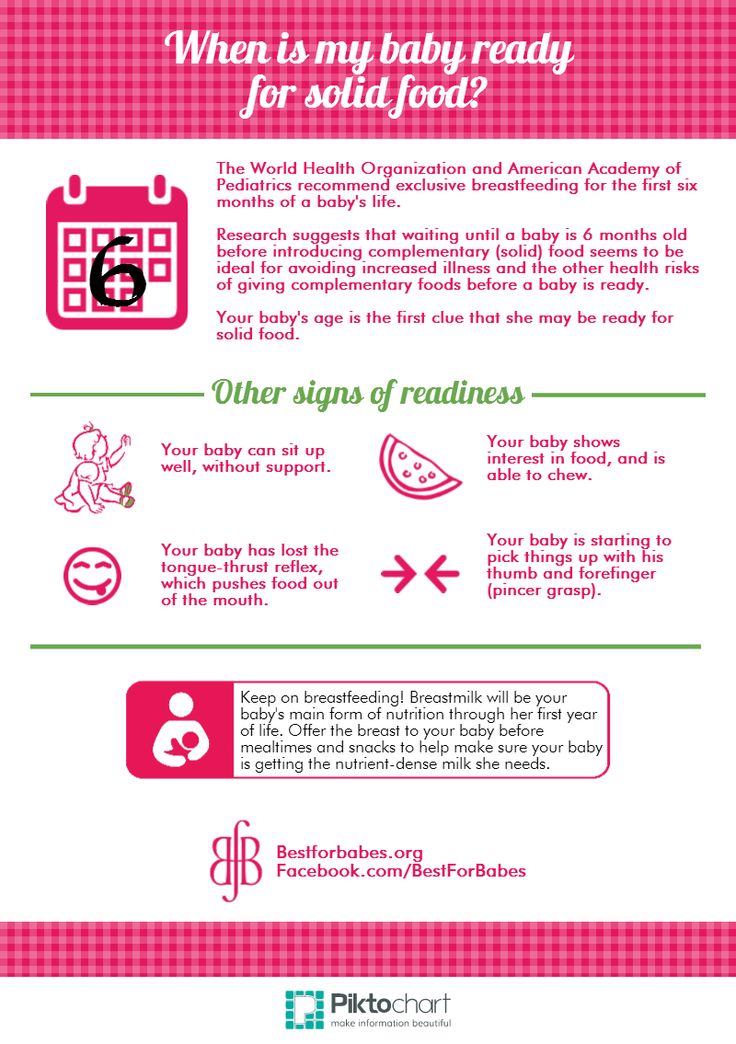8 month old baby solid food schedule
Meal Plan For an 8-Month-Old Baby: Feeding Schedule and Tips
What are the best foods for an 8-month-old baby?
A wholesome and healthy diet that contains the correct quantity of protein, carbohydrates, minerals, and vitamins is crucial for the growth of your baby. A correct mix of all these nutrients is found in a wide variety of food items.
A menu for an 8-month-old baby should include the following foods:
- Fruits — Fresh fruits form a vital source of a wide variety of minerals, vitamins, and other types of micronutrients. Fruits cut into cubes and cooked until soft make excellent finger foods for babies of this age. Please remember to use fruits that grow in your region or at least are very widespread. That will help lower the risk of an allergic reaction.
- Vegetables — At this age, your baby may shift from eating mashed vegetables to chewing small pieces of steamed vegetables. Soft cooked vegetables also make excellent finger foods for babies.
As with fruits, to reduce the chance of an allergic reaction, don’t try anything exotic.
- Fish — You can also introduce fish to an eight-month-old baby. Fish such as salmon and tuna is a rich source of omega-3 fatty acids and is excellent for the development of the brain and growth of babies. You can offer fish as a soup or as a puree to your baby.
- Dairy — Yogurt and cheese made from pasteurized milk are excellent sources of calcium for eight-month-old babies. You can include cottage cheese, cheddar, jack, and colby cheese. Soft cheeses including blue cheese and brie can pose a health risk, so hold off on these for now.
- Protein — You can include various foods that are rich in protein for an eight-month-old’s diet. Some protein-rich foods include legumes, beans, beef, egg yolks, chicken, fish, tofu, turkey, and pork. You can cook these foods and puree them or chop them into small pieces.
- Cereals and grains — You can mix together some of the cereals that your eight-month-old baby is already eating without producing a reaction.
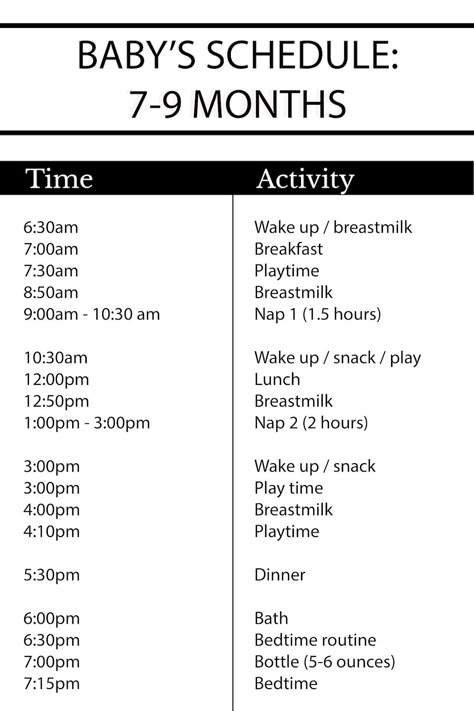 You can also introduce muffins and bread into the meal plan for your eight-month-old after your baby is able to enjoy foods with more texture. Pasta mixed with cheese is a popular favorite for babies of this age. The seeds and grains that you can include in your eight-month-old’s menu are amaranth, quinoa, rice, oats, wheat, sesame, spelt, barley, buckwheat, and millet.
You can also introduce muffins and bread into the meal plan for your eight-month-old after your baby is able to enjoy foods with more texture. Pasta mixed with cheese is a popular favorite for babies of this age. The seeds and grains that you can include in your eight-month-old’s menu are amaranth, quinoa, rice, oats, wheat, sesame, spelt, barley, buckwheat, and millet.
Take a quiz
Find out what you can do with our Health Assistant
8-month-olds feeding schedule
Making a feeding schedule for your eight-month-old baby is very personal. You will get familiar with your child’s cues gradually and can start to develop a schedule of sleeping, playing, and eating that meets the needs of your whole family. While creating an 8-month-old’s feeding schedule, remember that most babies this age need the following:
- Solid foods at least twice or three times a day along with 25 to 32 ounces of formula or breast milk every 24 hours. You can start increasing the quantity and variety of the foods in your 8-month-old baby’s diet.
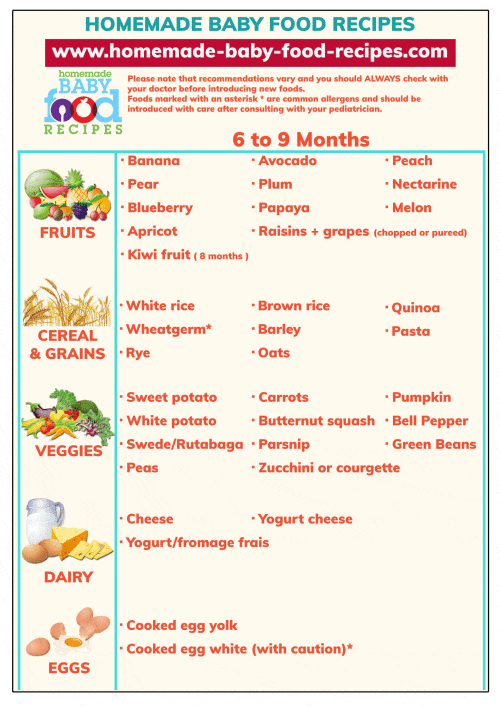 You can also try introducing a sippy cup and finger foods.
You can also try introducing a sippy cup and finger foods. - About 13 to 14 hours of sleep every 24 hours (including naps and overnight). Babies at this age often take two naps during the day — one in the morning and the other in the afternoon.
- Social interaction with their primary caregivers lets children play and work on developing new skills.
Sample meal plan for an 8-month-old
Preparing an 8-month-old’s meal plan may become more challenging as your child begins eating solid foods.
A sample meal plan for an eight-month-old baby is as follows:
Breakfast
- Mashed egg or cereal: ¼ to ½ cup
- Diced fruit: ¼ to ½ cup
- Breast milk or formula: 4 to 6 ounces
Snack
- Breast milk, formula, or water: 4 to 6 ounces
- Cooked vegetables or diced cheese: ¼ cup
Lunch
- Meat, cottage cheese, or yogurt: ¼ to ½ cup
- Orange or yellow vegetables: ¼ to ½ cup
- Breast milk or formula: 4 to 6 ounces
Snack
- One whole-grain cracker or teething biscuit
- Diced fruit or yogurt: ¼ cup
Dinner
- Diced tofu or meat: ¼ cup
- Green vegetables: ¼ to ½ cup
- Potato, rice, pasta, or noodles: ¼ cup
- Fruit: ¼ cup
- Breast milk or formula: 4 to 6 ounces
Before bedtime
- Water, breast milk, or formula: 6 to 8 ounces (if you are giving your child breast milk or formula before bed, it’s a good idea to also give them water afterwards)
Eight feeding tips for an 8-month-old baby
Here are few tips to keep in mind while feeding your 8-month-old baby.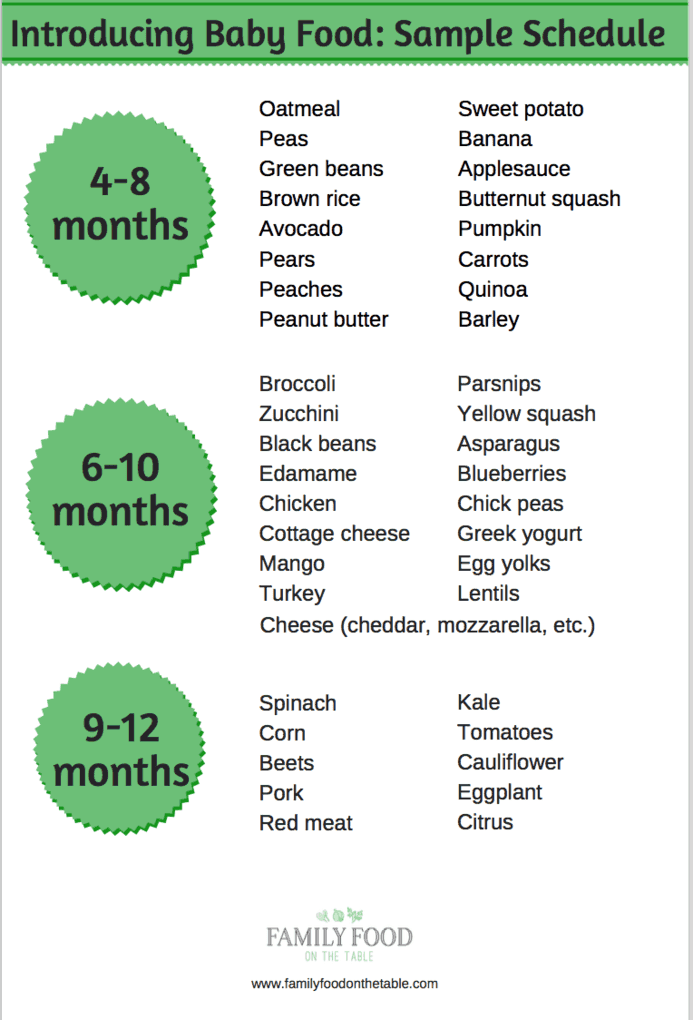
1. Don’t forget the breast milk or formula
At eight months, your child needs about 750 to 900 calories per day, from which 400 to 500 calories should come from formula or breast milk (approximately 720 ml or 24 ounces per day). They no longer need the calories from breastfeeding or formula once they turn one.
2. Stick to one feeding position and location
While feeding your baby, it’s best to try to stick to one feeding position and location. This helps develop a strong relationship between the place and the food. High chairs not only make mealtimes trouble free, but they are also excellent at teaching your child how to sit still while eating. They also help minimize choking hazards and keep food mess more or less isolated.
3. Don’t mash the food completely
Another thing to keep in mind while preparing food for an eight-month-old baby is not to mash the food completely. Instead keep the consistency somewhat grainy. This can help your baby transition from pureed foods to solid foods more easily.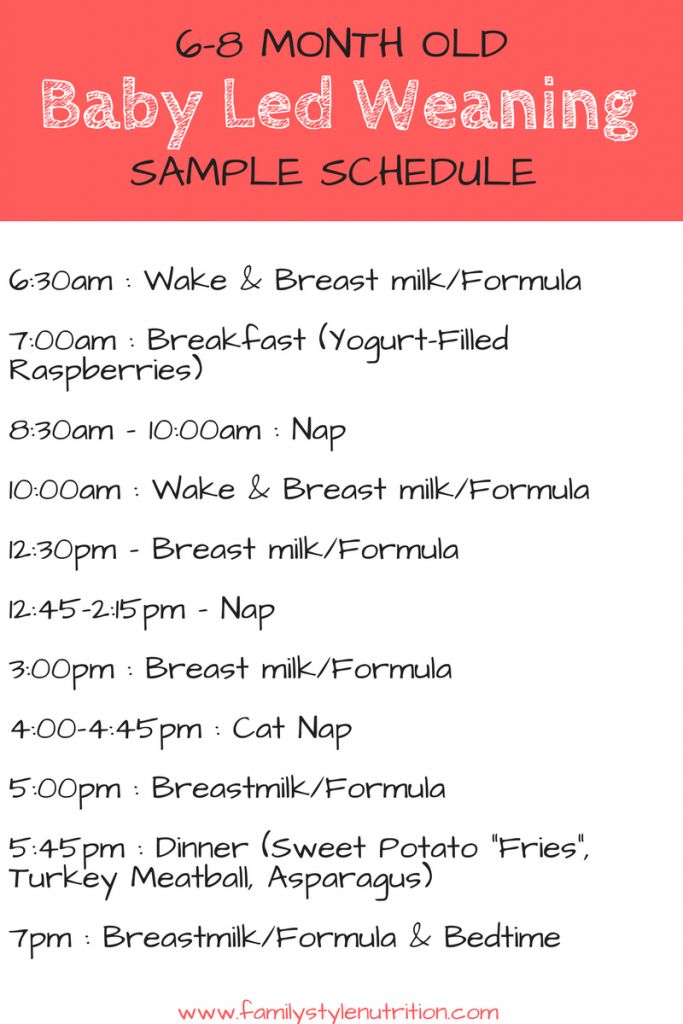
4. Don’t add salt or sugar yet
Salt and sugar can put unnecessary load on babies’ kidneys. Furthermore, eating too much salt during childhood has been shown to lead to higher risks of diseases such as hypertension, kidney disease, osteoporosis, and cardiovascular diseases later in life. Similarly, adding sugar to your baby’s diet can lead to tooth decay and cavities. Excessive sugar intake may also suppress immunity and make children more prone to developing diabetes, obesity, and cardiovascular diseases in adulthood.
5. Try to avoid plastic
If possible, store foods for your baby in containers made of glass or steel. Plastic sometimes contains harmful chemicals that can contaminate the food.
6. Avoid fried foods
Swap fried foods for steamed vegetables and fruits.
7. Be careful about allergies
When you are introducing new foods into an 8-month-old’s meal plan, make sure to introduce them one at a time, by themselves. This will help you identify any food allergies.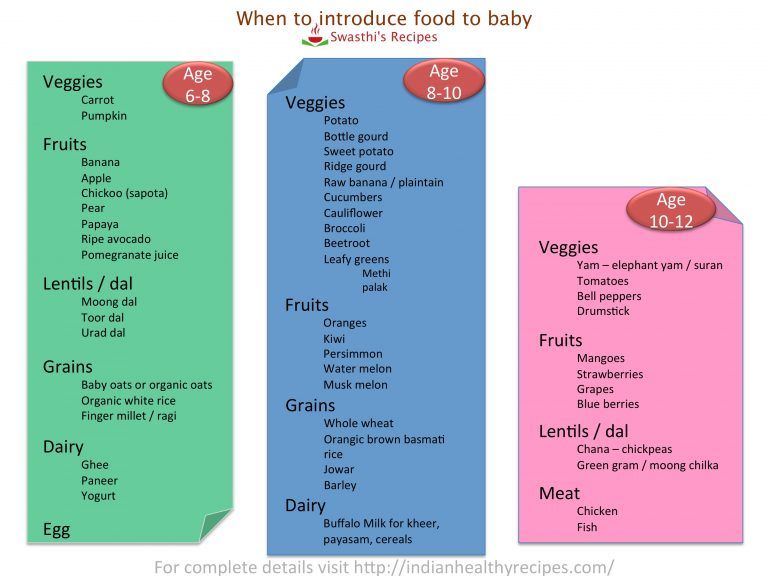 Health experts recommend that you wait at least four days between introducing new foods.
Health experts recommend that you wait at least four days between introducing new foods.
As you introduce new foods, look for possible allergic reactions such as hives, difficulty breathing, or rashes. If there is a family history of food allergies, particularly for eggs, nuts, and dairy products, exercise extra caution.
8. Don’t use cow milk yet
Cow milk doesn’t contain the essential nutrition that your baby needs at this age, so wait until they turn one before introducing it. Cow milk contains more salt, protein, calcium, and potassium than formula or breast milk. This can raise the load on babies’ kidneys.
By eight months, your baby is probably able to easily swallow mashed foods and beginning to chew soft and cooked solid foods. However, they’re still getting at least half their calories from formula or breast milk. The best foods for an eight-month-old baby are fruits, vegetables, fish, dairy, chicken, eggs, cereals, and grains.
Try to arrange the feeding schedule of your eight-month-old baby according to their personal needs and those of your family.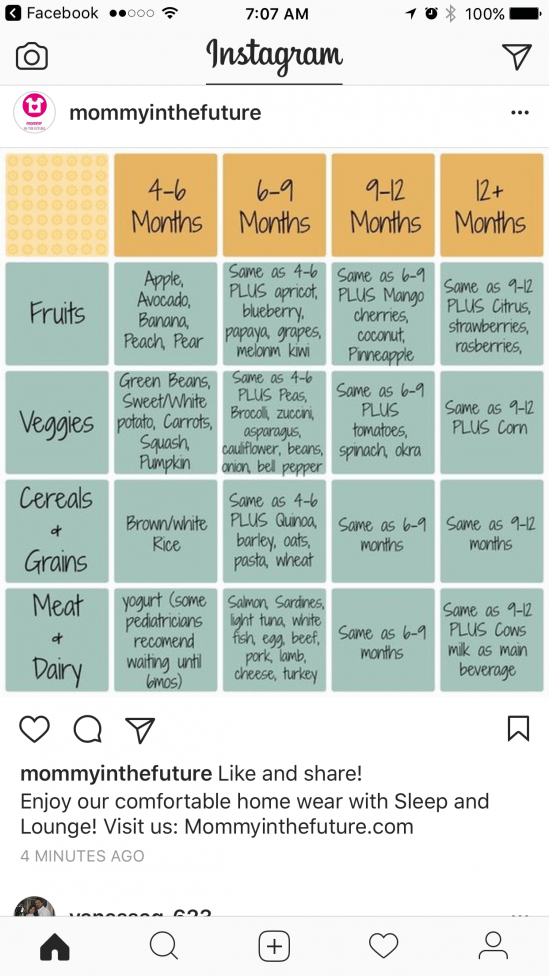 While preparing an 8-month-old baby’s meal, don’t mash the food completely. Avoid salt and sugar, and try to store leftovers in glass or steel. Be careful about food allergies, and don’t introduce cow milk until your child is one year old.
While preparing an 8-month-old baby’s meal, don’t mash the food completely. Avoid salt and sugar, and try to store leftovers in glass or steel. Be careful about food allergies, and don’t introduce cow milk until your child is one year old.
7- and 8-month-old feeding schedules
How much does your baby need to eat and drink every day – and how can you make sure they're getting all the vitamins and nutrients they need? It can be tricky to find the balance, since 7- to 8-month-olds are eating more solid foods, but still need anywhere from 24 to 32 ounces of breast milk or formula each day. These feeding schedules for 7- and 8-month-olds will help you fit all the pieces of your baby's diet together.
At 7 and 8 months old, your baby is focused on moving more, playing more, and learning more about the world around them. Also big on their to-do list is experiencing new solid foods. Now that they've got the basics of eating down, it's time to start expanding their palate and introducing them to new flavors and textures.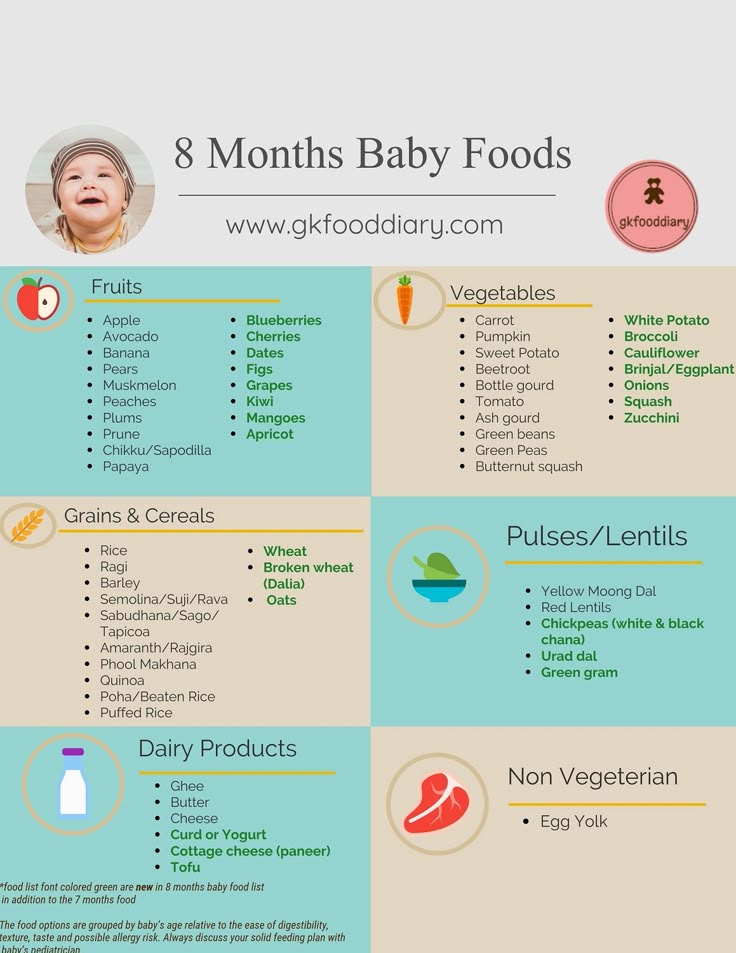
It can be a big help to see what other parents are doing. Below, you'll find several sample schedules modeled on those of real BabyCenter parents and reviewed by a pediatrician on our Medical Advisory Board.
As you're creating a schedule for your baby, here are some things to keep in mind:
- At 7 and 8 months old, babies need solid foods two to three times a day.
- They're still getting most of their nutrients from breast milk or formula, though. A formula-fed baby will drink about 24 to 32 ounces of breast milk or formula in a 24-hour period.
- At 7 months old, your formula-fed baby will most likely drink 6- to 8-ounce bottles three to five times a day. By the time they're 8 months old, they'll have three or four bottles per day. (Here's how to tell whether your baby is getting enough formula.)
- Breastfed babies also need about 24 to 32 ounces of breast milk daily, though it'll likely be on the lower end of that range. Your baby will most likely nurse three to five times a day at 7 and 8 months old.
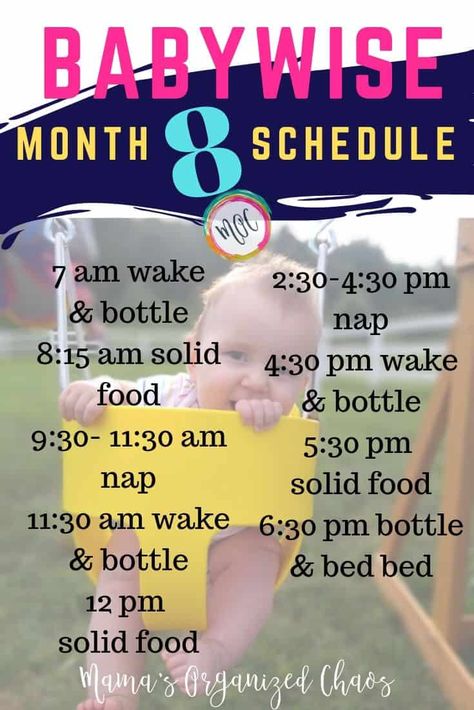 (Here's how to tell whether your baby is getting enough breast milk.)
(Here's how to tell whether your baby is getting enough breast milk.)
Now's the time to start increasing the amount and variety of your baby's foods and to introduce finger foods and perhaps a sippy cup. If you're baby-led weaning, your baby is already familiar with finger foods but may be ready for you to expand their menu.
If you started with easy-to-eat foods like avocado, banana, and applesauce, you can start encouraging your baby to get a bit more adventurous. In fact, you can work on incorporating foods from the major food groups, offering bits of shredded chicken or fish, yogurt and pieces of cheese, soft fruits and veggies, and whole grains in the form of hot or cold cereal.
Also, talk to your pediatrician about the best way to introduce high-allergy foods such as peanuts, tree nuts, egg, wheat, soy, dairy, fish, shellfish, and sesame.
Keep in mind, though, that your baby's tummy is still on the small side, so they'll only eat a little bit of food at each meal.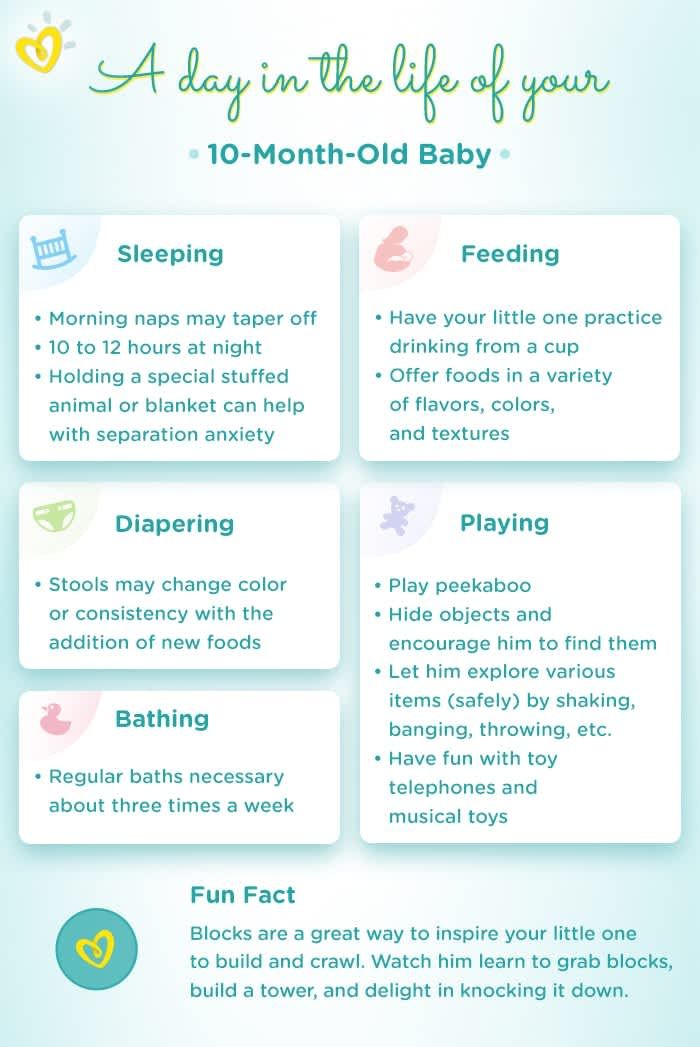 You can aim for 1 to 3 tablespoons of grains, fruits, veggies, and proteins per meal, and slowly increase that amount over the next few months.
You can aim for 1 to 3 tablespoons of grains, fruits, veggies, and proteins per meal, and slowly increase that amount over the next few months.
Sample 7-month-old feeding schedule
7 a.m.: Nurses.
8 a.m.: Breakfast – 3 tablespoons of baby cereal mixed with 2 ounces of breast milk, plus some pureed fruit.
8:45 a.m.: Playtime.
9:30 a.m.: Naptime.
11 a.m.: Nurses, then playtime.
11:45 a.m.: Naptime again.
12:30 p.m.: Lunch – 3 tablespoons of baby cereal mixed with 2 ounces of breast milk, some pureed fruit, and water in a sippy cup.
2 p.m.: Naptime.
3 p.m.: Nurses.
3:15 p.m.: Playtime.
5 p.m.: Dinner – 3 tablespoons of cereal mixed with 2 ounces of breast milk, some pureed veggies, and water in a sippy cup.
6:30 p.m.: Bath time.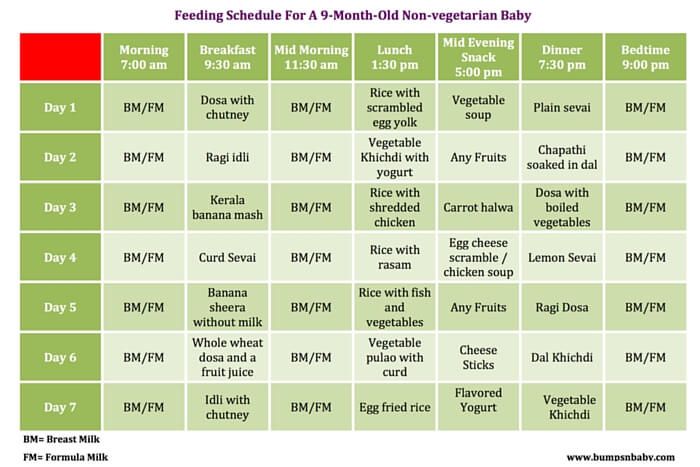
7:15 p.m.: Nurses.
7:30 p.m.: Bedtime.
Sample 8-month-old feeding schedule
7 a.m.: 8-ounce bottle, then playtime.
8 a.m.: Breakfast – a pouch or jar of fruit.
9 a.m.: Playtime.
10 a.m.: 6-ounce bottle and nap time.
12:30 p.m.: Lunch – a pouch of meat and veggies.
1 p.m.: Playtime outside.
2 p.m.: 6-ounce bottle and naptime.
5 p.m.: 4-ounce bottle, then playtime.
6 p.m.: Dinner – half a jar of veggies and a half jar of fruit.
6:30 p.m.: Playtime.
7:15 p.m.: Bedtime routine, 8-ounce bottle, then bedtime.
Meal ideas for 7- and 8-month-olds
Not sure how to get started planning nutritious meals for your baby? You can follow the rule of four: give your baby one serving each of protein, carbohydrates, fruits, and veggies.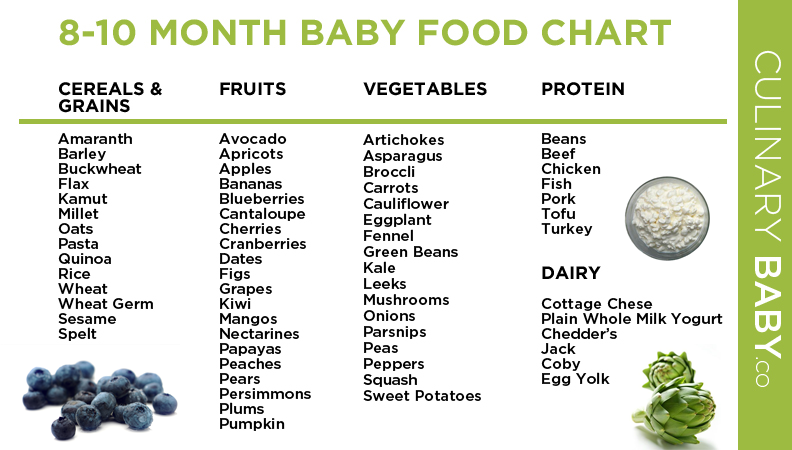 If you're not sure how much to feed your baby, check out our visual guide.
If you're not sure how much to feed your baby, check out our visual guide.
Here are some simple things you can serve your 7- to 8-month-old.
Breakfast:
- Yogurt with pureed fruit
- Mashed sweet potatoes
- O-shaped cereal
- Baby oatmeal
- Cottage cheese with pureed fruit
- Scrambled eggs
Lunch:
- Mashed black beans
- Pureed chicken
- Ground beef and pureed veggies
- Lentils
- Turkey and zucchini puree
- Whole-grain crackers with a thin smear of peanut butter
- Mashed banana with Greek yogurt
Dinner:
- Pureed beef with steamed peas
- Small pieces of whole grain bread with mashed avocado
- Shredded turkey
- Whole-grain pasta with tomato sauce
Learn more:
- Your 7-month-old's growth and development
- Your 8-month-old's growth and development
- Recipes for babies 6 to 12 months old
- Age-by-age guide to feeding your baby
Complementary foods at 8 months - Encyclopedia Baby food
Levchuk Victoria © Complementary foods at 8 months is a period of independence, when the child shows a desire to feed himself! This article provides information on complementary foods for children from 8 months of age.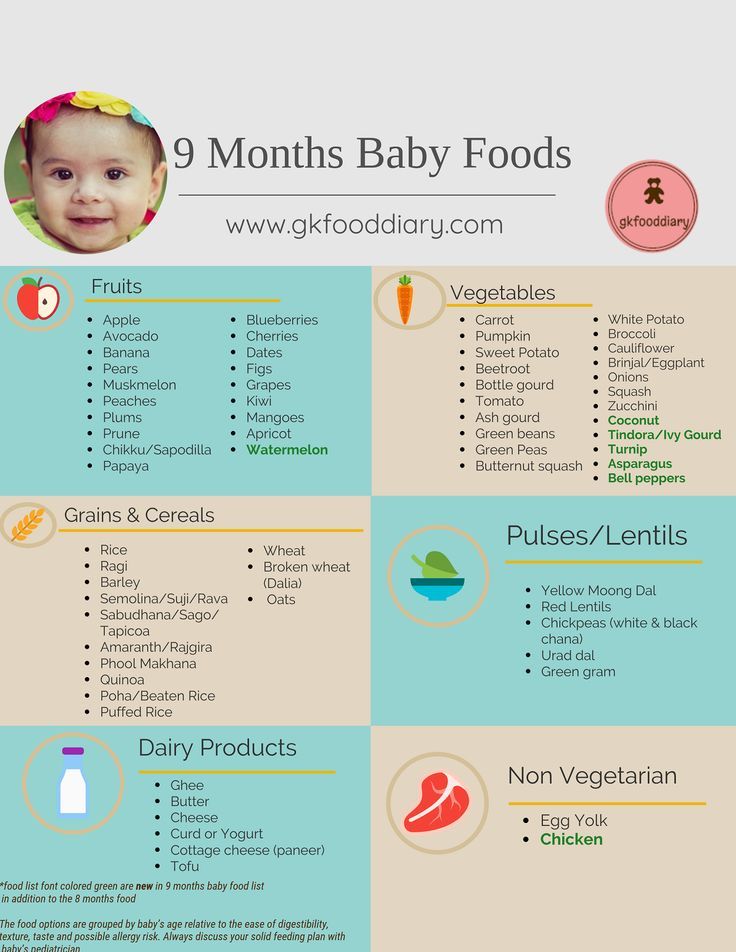
Baby at 8 months most likely weighs about 8.3 kg and is now able to eat some small solid foods. A couple of months ago, the child got rid of tongue thrust reflex, food is no longer pushed out of the mouth by the tongue. The child can sit independently in the highchair, so you can feed the baby at the common table.
Breast milk continues to be the main source of infant nutrition. However, at the same time, the baby can eat adult food 2-3 times a day. At this stage of development, the baby needs complementary foods as an additional source of energy and nutrients, since the baby’s motor and mental activity has increased significantly at 8 months.
It must be taken into account that the feeding regimen during breastfeeding may change, because during the day the baby is busy exploring the world around him, so he can simply forget about breast milk, but at the same time, nighttime feedings can increase up to 6 times. With IV, there can be up to 4 feedings with milk formula, not counting complementary foods.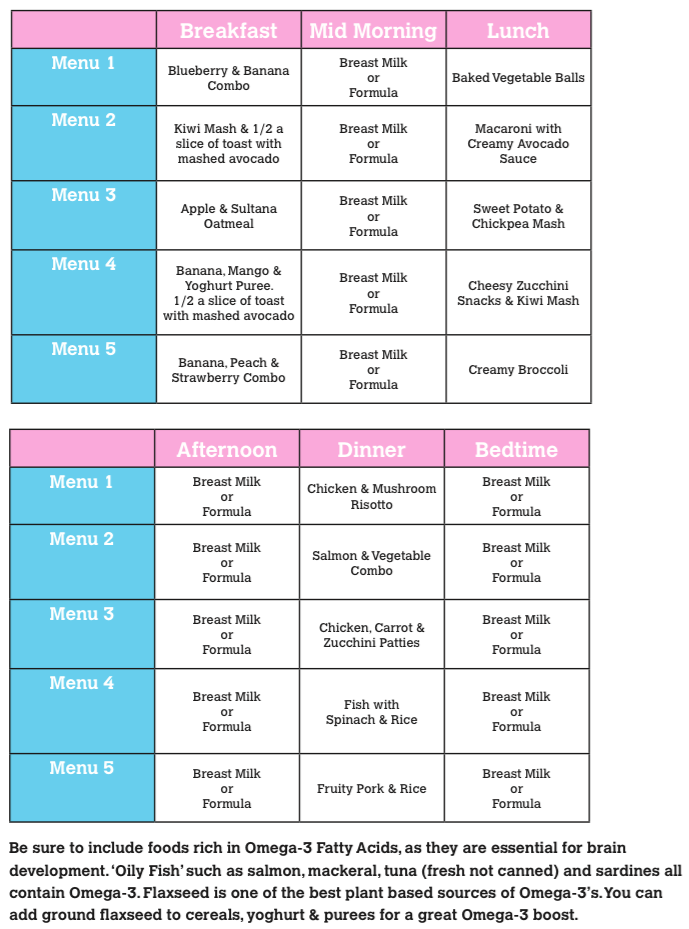
Contents:
At this age, the baby begins to show a lot of independence, he wants to drink from a cup without his mother's help, while holding it with both hands. Most children at 8 months like to study food slowly and thoroughly, and they are interested in food not only in his plate, but also the neighboring one. Their cognitive interest can lead to rubbing applesauce on the table or throwing food on the floor, and moms remember that the spreading liquid is a very interesting sight for a little inquisitive baby. And to treat mom with an apple is another exciting activity.
The child has just learned to take small pieces of vegetables between the thumb and forefinger, and transfer them to the mouth, and then chew them all. Sometimes all this can be annoying, because the actions of a child bring disorder and dirt into our measured adult life. However, this is an important step in the development of the baby, which allows them to learn and fills them with energy.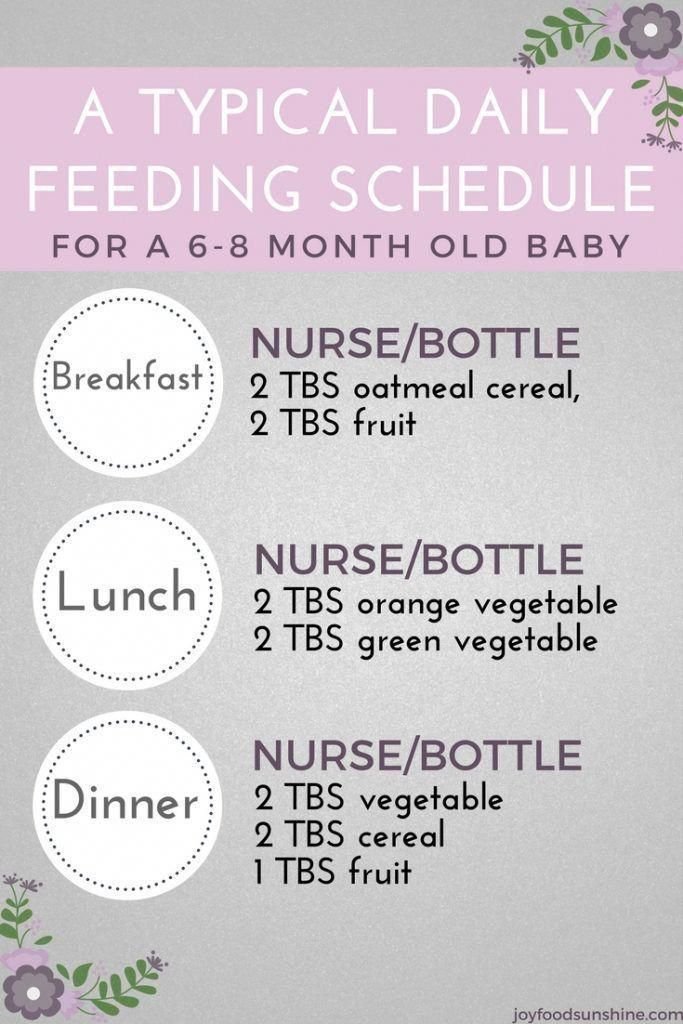 It is best at this stage for the child to eat with all family members so that he clearly remembers the rules of cultural behavior at the table, remember that your behavior will be copied and shown in all its glory a little later.
It is best at this stage for the child to eat with all family members so that he clearly remembers the rules of cultural behavior at the table, remember that your behavior will be copied and shown in all its glory a little later.
Most likely at 8 months the baby has about 4 teeth, but maybe not one or more, do not be upset if they are not there, this is normal. If there are teeth, the baby can eat finely chopped food, as we wrote earlier, pureed food is offered to babies at 7-9 months. However, already at 8 months they can be offered pieces of soft baby biscuits, apples or boiled carrots, on which the baby learns to chew and bite. You can read more about finger food here.
Complementary foods at 8 months: What to feed???
Complementary foods at 8 months is a good time to continue introducing new foods in addition to breast milk or formula. As a finger food, you can enter soft baby biscuits, drying or crackers. At 8 months, you can cook vegetable soups from potatoes, zucchini, carrots, etc.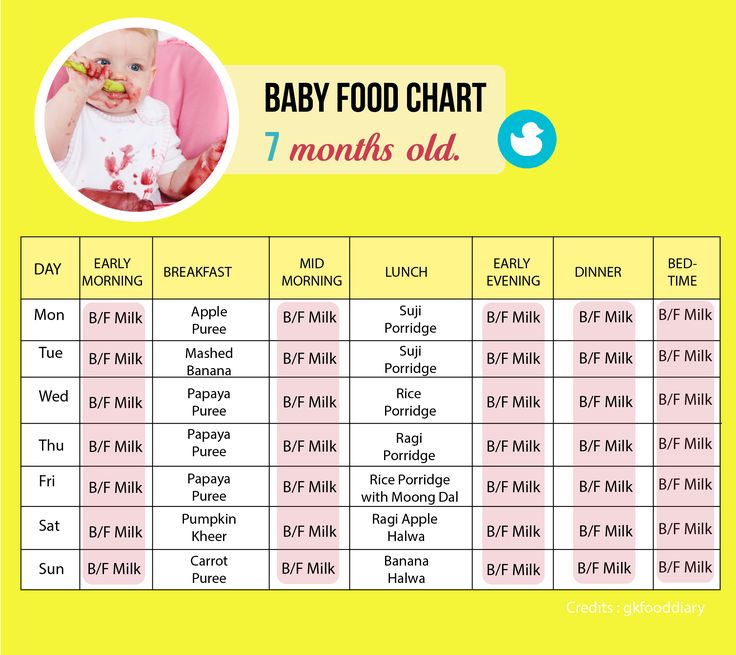 You can add onion, garlic, dill or parsley to the soup, we remind you, only after the gradual introduction of these products into the baby's diet (the waiting rule is 4-7 days).
You can add onion, garlic, dill or parsley to the soup, we remind you, only after the gradual introduction of these products into the baby's diet (the waiting rule is 4-7 days).
We continue to feed the child in the morning with dairy-free cereals, there is already a large selection - buckwheat, rice, corn, oatmeal, quinoa is possible. Closer to 7-8 months, if all these cereals are introduced into the baby's diet, you can cook multi-cereal cereals, mix 2-3 types of cereals and offer the child. Perhaps he has already formed his own taste and favorite porridge.
Please note that you should not go on about the crumbs, if he refuses to eat this or that product. You should offer a new product more than 20 times, with short breaks, i.e. offered - refusal, after 10-14 days we offer again and so on up to 20 times. Yes, the child’s addiction to new foods may take longer, but he will eat everything.
Meat food at 8 months
Most pediatricians advise introducing meat into baby food at eight months.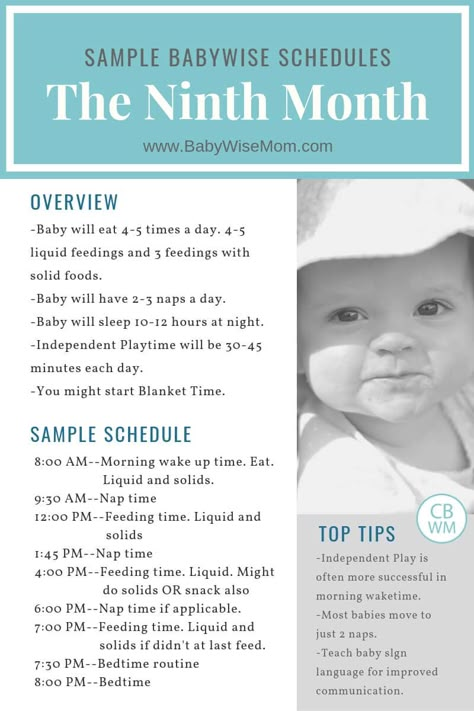 But do not rush into this, it is considered the norm to introduce meat into the diet of a child of 8-10 months. So it is not necessary to introduce meat products on the day when the baby is 8 months old. Usually, meat supplements at 8 months start with rabbit or turkey, but you can start with lean beef.
But do not rush into this, it is considered the norm to introduce meat into the diet of a child of 8-10 months. So it is not necessary to introduce meat products on the day when the baby is 8 months old. Usually, meat supplements at 8 months start with rabbit or turkey, but you can start with lean beef.
The main thing for preparing meat puree is not to use the meat broth in which the meat was cooked. And also remember that the secondary broth is always used, do not worry, the baby will receive all the elements he needs, which will remain in the meat puree.
Meat puree is usually served with vegetables or porridge. The first meat complementary foods will be equal to 1 teaspoon, then every day we increase the meat complementary foods and reduce the vegetable ones, we wrote here about replacing the first complementary foods with the second. We bring the meat to 30 grams, if the baby eats less, do not be discouraged, this happens.
Complementary foods at 8 months
Complementary foods at 8 months are also supplemented with kefir, but most pediatricians currently advise waiting up to 12 months for its introduction.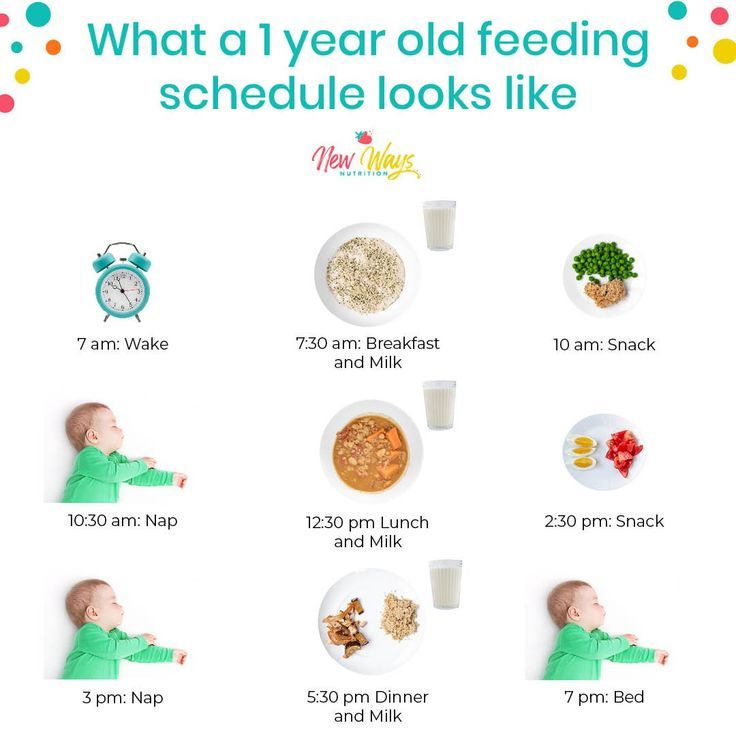 However, if you decide to introduce kefir into your diet, then we remind you that it does not belong to complementary foods, as it is rather a drink, because it is not thick. They offer kefir to the baby, as usual we introduce a new product, gradually bring it up to 200 ml. Many mothers with children on IV replace the last feeding with kefir or another fermented milk product.
However, if you decide to introduce kefir into your diet, then we remind you that it does not belong to complementary foods, as it is rather a drink, because it is not thick. They offer kefir to the baby, as usual we introduce a new product, gradually bring it up to 200 ml. Many mothers with children on IV replace the last feeding with kefir or another fermented milk product.
However, it is necessary to warn that fermented milk products have a negative effect on tooth enamel, I do not dissuade you from feeding your child with kefir or yogurt, they are very useful, just after this meal the child should be given water to drink or brush his teeth. And of course, it is best to replace nightly dairy (for example, milk) and sour-milk feedings with water. I understand it is difficult, but in 2-3 weeks of your stoic “no”, the child will get used to not eating at night. Again, I am writing about children who have completely switched to complementary foods. If you are formula feeding or breastfeeding, then feed for health at night.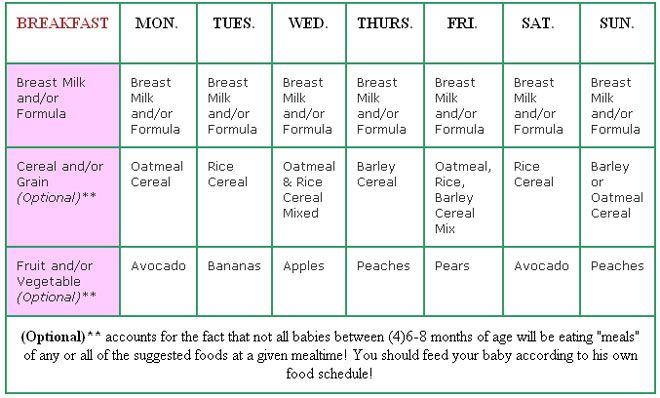
Fruit food at 8 months
From fruit you can add banana, peaches, apricots and blueberries. At first, we give a boiled banana, then after the child has adapted, you can give it fresh. With a banana, carefully so that the child does not choke. Do not leave your child unattended when eating new foods.
You can also use canned puree, and many parents choose the option of meat puree from a can, as it can be difficult to make such puree as in a store at home, the meat has fibers and a blender sometimes does not help much to achieve a homogeneous consistency. And banana puree can be offered canned for the first time, so as not to suffer with its preparation.
Feeding a baby at 8 months: Schedule
Usually for breastfeeding and IV feeding is the same, the number of feedings is only 5, and the interval between feedings is 4 hours. The approximate amount of food for one feeding is 230 grams, but it all depends on the child.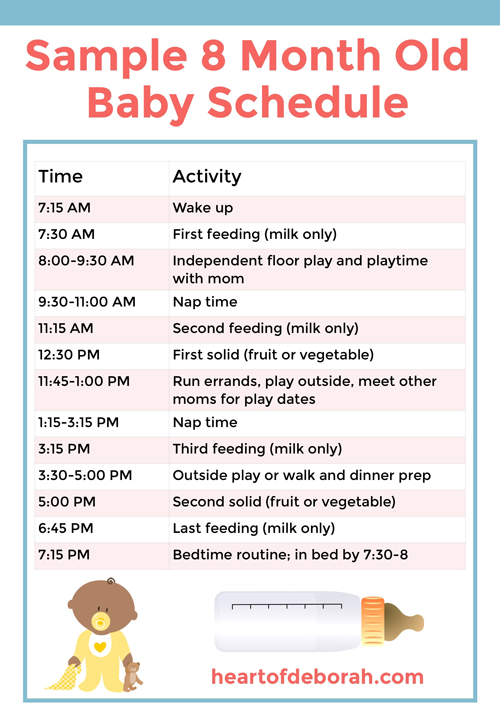 Complementary foods at 8 months are given 2-3 times a day.
Complementary foods at 8 months are given 2-3 times a day.
Feeding a baby at 8 months: Norms
The table shows the approximate norms of food consumption at one meal. Your child is a special person, so you should not equate him with the framework. The baby can eat more than the following norms, or vice versa, much less. Sometimes they eat a lot one day, and the next day they don’t eat at all, they only drink water.
Therefore, you should not force the child, this table offers the mother the option of cooking in a given amount, although, most likely, by 8 months, parents already know approximately how much their baby eats. We also draw your attention to the fact that children on breastfeeding can eat less than the indicated norms, as they know for sure that later they will receive tasty and healthy mother's milk. So my son ate only 100 grams of vegetable puree with 30 grams of meat and washed everything down perfectly with breast milk, such a dinner suited him.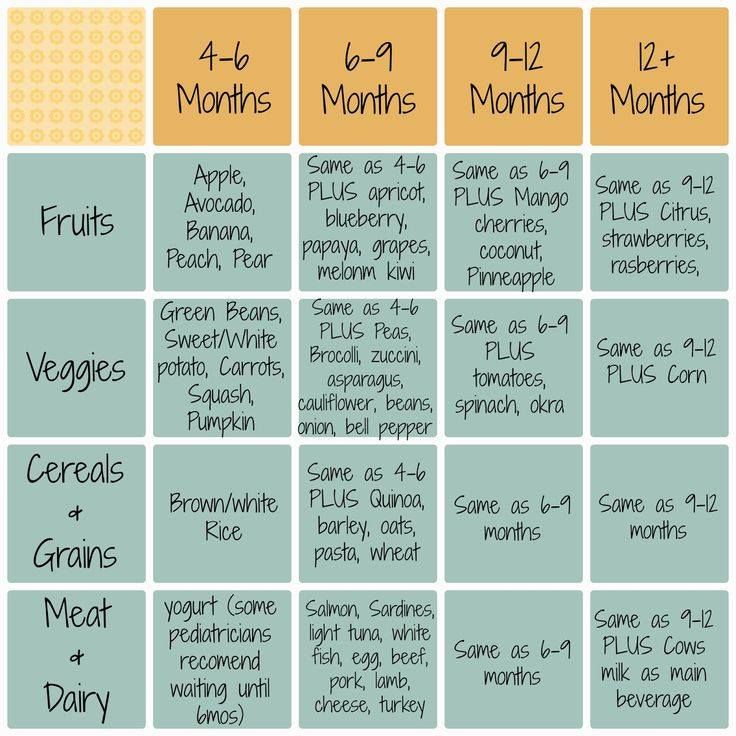
Feeding a baby at 8 months: Rules of behavior at the table
A child's intelligence is growing rapidly by 8 months, so it is necessary to teach him to observe certain rules at the table. At seven months, we gave the baby a spoon, but he played with it more than he used it, but there are already results, right? At 8 months, you can wash your hands before eating, laying the foundations of etiquette. Be sure to monitor the cleanliness of children's dishes so that the baby gets used to cleanliness from an early age. And we also make sure that the baby eats in a calm environment without books and toys.
He must separate play and feeding times. Accordingly, no watching TV or the Internet while feeding the baby. The attention of the family at the table completely belongs to the food on the plate, we teach the child to eat with the family, in a quiet conversation, to enjoy delicious food and communication.
We remind you that food for a baby at 8 months is an additional source of energy and nutrients, so be careful not to make food the cure for baby crying .
If a child has acquired this habit from the first months of his life, then this can lead to excess body weight, which is very difficult to remove later.
Complementary foods at 8 months : Water
By 8 months the child is consciously interested in water, if before he could still refuse water, now, most likely, he reaches for a cup on his own, but not in an attempt to drink water, he just copies his mother's actions. A child on breastfeeding practically does not drink water, as he receives enough liquid from breast milk, but still, water is offered in a cup between feedings.
In hot weather, breastfeed your baby more often if he absolutely refuses to drink water. A child on IV drinks water almost from birth, so we continue to offer to drink from a cup. There are no norms for the volume of water, a child can drink from 100 to 300 ml of water per day, the main thing is not to force him to drink water, often offer, set a positive example.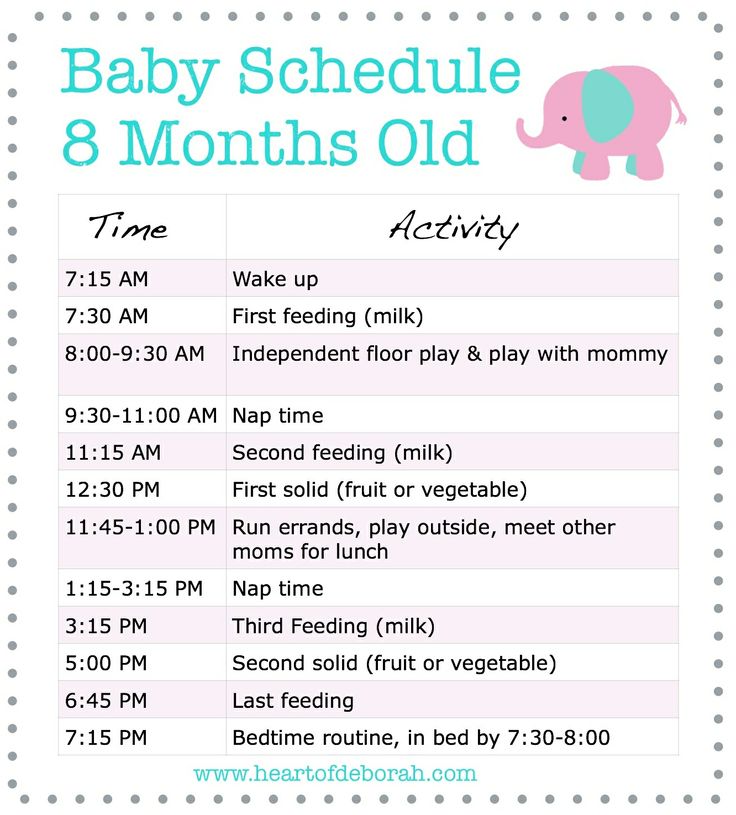
Feeding a baby at 8 months: Ideas
Complementary foods at 8 months are very diverse, as a huge number of new products have been introduced into his diet, you can combine them, combine and give your baby a lot of unforgettable taste experiences. Below are examples of children's recipes. We continue to feed the baby with his favorite dishes, and add new recipes to our piggy bank.
- Porridge:
- rice (and/or buckwheat, corn) Porridge with a banana (cereal 100 grams, fruit 80 grams)
- Rice (and buckwheat) (corn) Porridge with a peach
- rice (and/or buckwheat, corn) Porridge with apricot
- rice (and/or buckwheat, corn) porridge
- rice 9000 (and/or bunch , corn) Porridge with peach and apricot
- rice (and/or buckwheat, corn) Porridge with peach and apricot and blueberry
- rice (and/or buckwheat, corn) porridge with cherries 2222222222222
- Rice (and/or buckwheat, corn) porridge with rabbit ( and/or turkey, lean beef)
- Rice, corn) 9/0122
- Vegetable soup with broccoli, carrots, onions, parsley
- Vegetable soup with carrots and pumpkin
- Vegetable soup with potatoes, pumpkin, onions, parsley, zucchini
- Rabbit soup () and/or turkey, low -fat beef) with onions and carrots
- Soup from rabbit ( and/or turkey, low -fat beef) with broccoli, carrots and onions of
0005
Diet for an 8-month-old baby
In the ninth month, fish can be introduced into the diet of babies.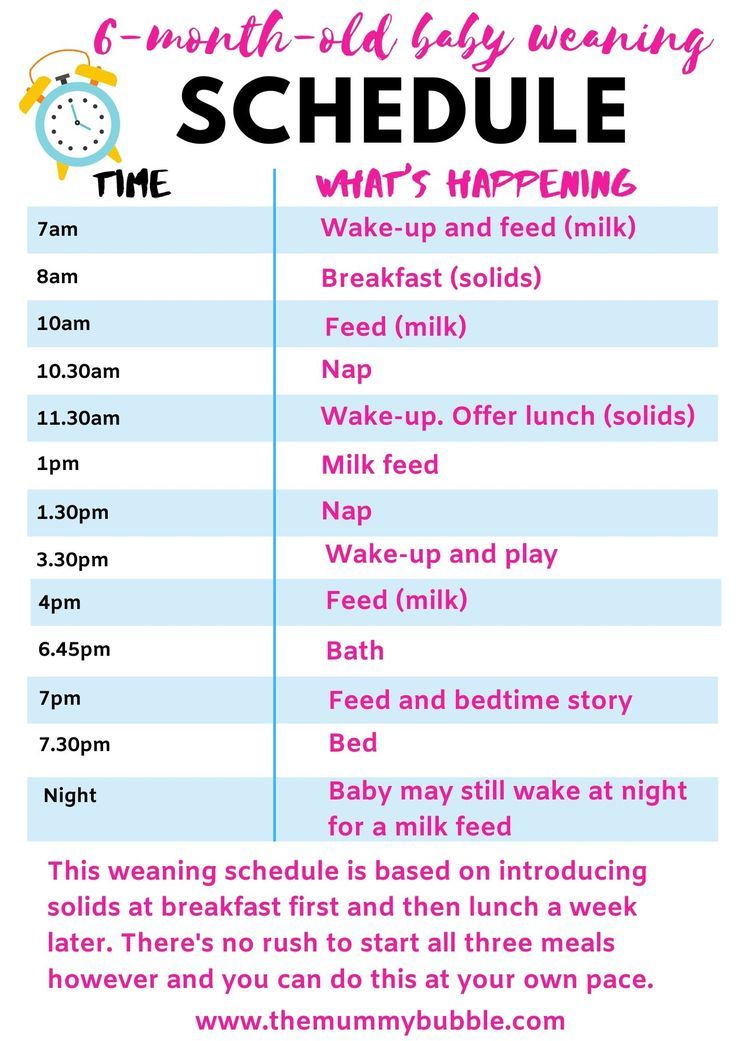 Along with animal meat, fish is a source of complete protein with a well-balanced composition of amino acids, fat, vitamins B2, B12 and minerals. Compared to meat, fish contains 5 times less connective tissue, due to which it is quickly boiled soft, has a delicate texture after heat treatment and is easier to digest. Fish oil is characterized by a high content of polyunsaturated fatty acids, including the ω-3 class. These substances are necessary for the child to mature the brain, retina, strengthen the cardiovascular and immune systems. Sea fish contains such important trace elements for the child's body as iodine and fluorine. The child should be given 1-2 times a week instead of meat, be sure to monitor how the child tolerates fish in general and its individual varieties. Preference should be given to oceanic fish, preferably white (cod, hake, pollock), red salmon can be recommended, river pike perch, carp.
Along with animal meat, fish is a source of complete protein with a well-balanced composition of amino acids, fat, vitamins B2, B12 and minerals. Compared to meat, fish contains 5 times less connective tissue, due to which it is quickly boiled soft, has a delicate texture after heat treatment and is easier to digest. Fish oil is characterized by a high content of polyunsaturated fatty acids, including the ω-3 class. These substances are necessary for the child to mature the brain, retina, strengthen the cardiovascular and immune systems. Sea fish contains such important trace elements for the child's body as iodine and fluorine. The child should be given 1-2 times a week instead of meat, be sure to monitor how the child tolerates fish in general and its individual varieties. Preference should be given to oceanic fish, preferably white (cod, hake, pollock), red salmon can be recommended, river pike perch, carp.
Self-cooked fish is given to a child with boiled and mashed vegetables.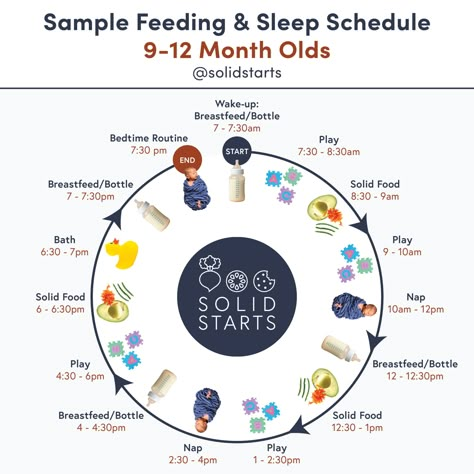 You can also offer your baby fish and vegetable canned food, but they contain only 10 - 20% of fish.
You can also offer your baby fish and vegetable canned food, but they contain only 10 - 20% of fish.
At this age, when all the main food groups have already been introduced, special attention should be paid to the diversity of the composition of dishes. New, possibly combined products are introduced, for example, not only purees from various fruits and berries, but also their combinations with cottage cheese, cream, cereals, etc.
From the age of 8 months, the child's diet can be expanded to include fermented milk products (baby kefir, biokefir, bifidokefir, yogurt, bioyogurt, biolact). Fermented milk products are prepared using a special starter culture that breaks down milk protein, so that the baby can get an indispensable set of amino acids in a well-available form. Fermented milk products improve the composition of the intestinal microflora of the child, are rich in B vitamins and calcium. Their regular use favorably affects the functioning of the intestines, stimulates appetite, and increases the absorption of micronutrients.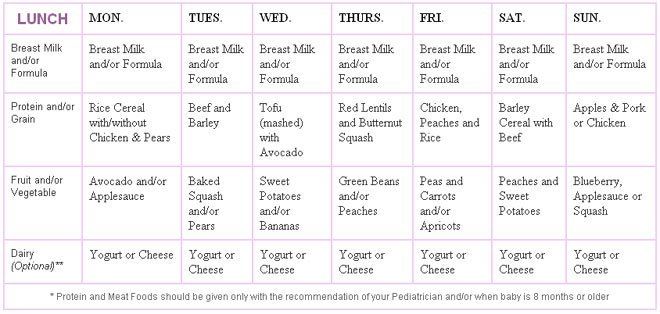 Children's dairy products are introduced into the baby's diet gradually, starting with 1 tsp. and with good tolerance increase their volume to 150-200 ml per day.
Children's dairy products are introduced into the baby's diet gradually, starting with 1 tsp. and with good tolerance increase their volume to 150-200 ml per day.
Sample menu for a healthy baby 8 months
| I feeding 6 hours | Breast milk or infant formula | 200 ml |
| II feeding 10 hours | Dairy-free* or milk porridge Butter Boiled egg yolk Fruit puree Fruit juice | 180 g |
| III feeding 14 hours | Vegetable puree Vegetable oil Meat puree Fruit juice | 170 g 1/2 tsp 50 g 50 ml |
| IV feeding 18 hours | Cottage cheese Baby biscuits Fruit puree Supplementation with breast milk or baby kefir/yogurt | 40 g |

